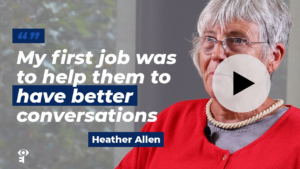Case Study: How Neutral Chairing can Empower Individuals to Succeed
Overview
Mediator: Heather Allen
Clients: Family Operated Business
Outcome: Acting as a neutral chair in board meetings, Heather was able to empower the chairperson to take charge and run subsequent meetings successfully.
Background
An established family business with a history spanning four generations adds a new board member is the subject of this case. The company’s seven-member board primarily comprised family members, with only one non-family member representing external expertise. Recognising the need for technical expertise to address the evolving nature of the business, the board decided to appoint an additional member with specialised knowledge.
Technical Expertise and Conflict
The newly appointed board member’s technical expertise initially proved beneficial, providing valuable insights and guidance. However, a disagreement arose between the technical expert and the board member previously responsible for technical decisions. This conflict stemmed from a significant investment in machinery, with both individuals holding strong opinions on the matter.
Intervention and Facilitating Improved Communication
To address the conflict and restore effective communication, Heather was brought in. The primary objective being to facilitate constructive dialogue among board members, enabling them to resolve their differences and make informed decisions.
Neutral Chair and Shared Leadership
The mediator’s role evolved into that of a neutral chair, facilitating a series of preparatory meetings leading up to the crucial board meeting where critical financial decisions were to be made. Initially, the board’s usual chair expressed a desire for the consultant to lead the upcoming meeting. However, Heather emphasized the importance of the usual chair retaining the leadership role, suggesting their own presence as a supportive resource.
Empowering the Board
By refraining from dominating the meeting, the consultant empowered the board to take ownership and demonstrate their collective leadership. The board’s ability to draw upon the insights gained from the preparatory meetings enabled them to make informed decisions collaboratively.
Outcomes
Heather’s intervention successfully facilitated improved communication and collaboration among board members, enabling them to navigate the technical expertise challenge and make critical financial decisions effectively. Performing the role of a neutral chair, demonstrated the importance of balancing family dynamics with external expertise and helped foster a culture of open dialogue within the board.



